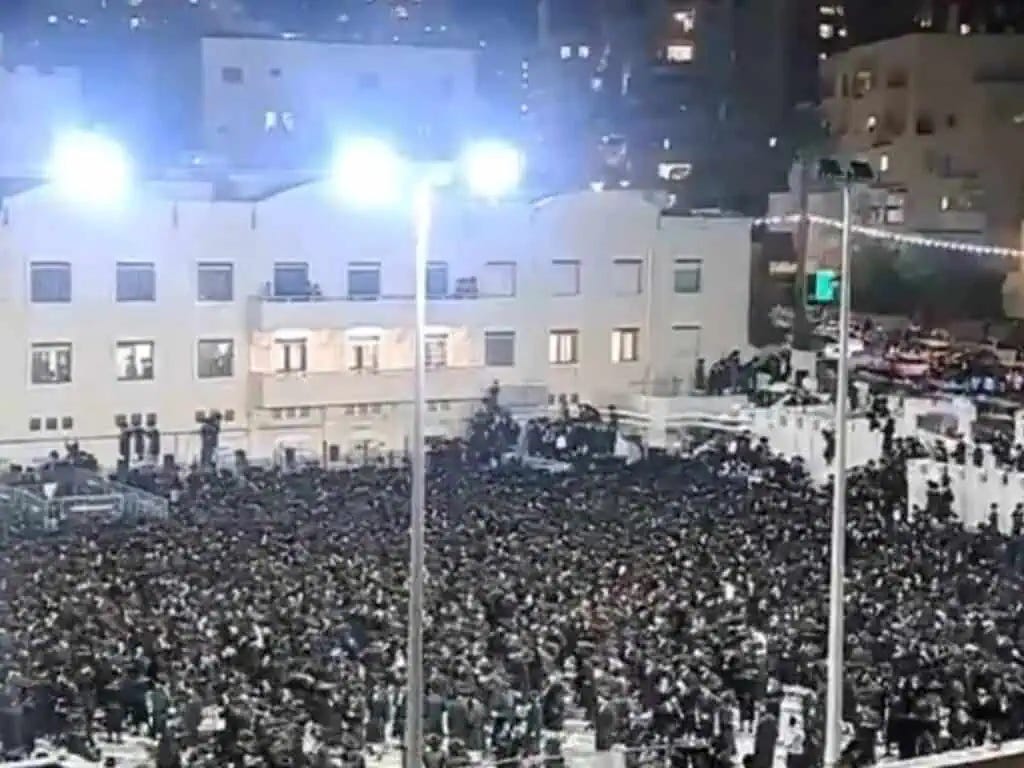For Whom The Belz Toll
A giant wedding during a war
A few months ago, I wrote a positive post about Belz chassidim, The Belz of Change, about how Belz is one of the chassidic groups most open to some amount of general studies. This post, unfortunately, does not have praise.
This week there was a major Belz wedding. Weddings are wonderful, right? Lots of people getting together to celebrate!
Well, not if you’re in the middle of a war, when at just 90 seconds’ notice a ballistic missile could slam into the ground with a hypersonic blast wave that can be lethal even if nothing physical comes into contact with you. And thus there are currently rules in Israel limiting how many people can gather together at a location, with variables depending on the nature of the location.
That’s why my museum has been closed all week. That’s why the wedding that one of my children attended the other day was not the dream wedding that the bride had planned, but rather was held in someone’s back garden.
But life in the charedi world has continued pretty much as normal. Home Front restrictions are widely disregarded. Weddings take place, including huge ones - the Belz wedding had several thousand people in attendance.
Now, in an earlier post, “Bnei Brak is Protected,” I claimed that “Every charedi believes in the protection of Torah until their city gets hit by a ballistic missile.” But it seems that this only goes far. It went far enough for the Rabbis of Bnei Brak to insist that people need to follow the rules and take precautions, but not far enough for Belz.
Why? Because ultimately it’s very difficult to change a culture. And charedi culture in general, and chassidic culture in particular, is that rules, even rules about safety, are for goyim. We saw this with Covid, we saw it with Meron, we see it with how people drive in certain neighborhoods. They are presumably faintly aware that people die in accidents caused by negligence, but they don’t feel themselves to be part of that reality.
And the same is true with the army. Charedim are faintly aware that there’s a war going on, and that soldiers are needed to fight that war. But it’s not part of their community, not part of their lived reality, and therefore they feel no sense of responsibility towards sharing the responsibility.
The English soldier and poet John Donne (1571-1631) composed a very famous poem, For Whom The Bell Tolls, about how people need to appreciate the significance of everyone in the world:
No man is an island,
Entire of itself…
Each man's death diminishes me,
For I am involved in mankind.
Therefore, send not to know
For whom the bell tolls,
It tolls for thee.
Donne said that no man is an island, but charedim strive to come as close as they can be. They are not involved in mankind; they do not feel diminished by the deaths of others, because they are barely aware of them. The funeral bells toll for others, not for them.
But there’s also another group to criticize here.
Keep reading with a 7-day free trial
Subscribe to Rationalist Judaism to keep reading this post and get 7 days of free access to the full post archives.



